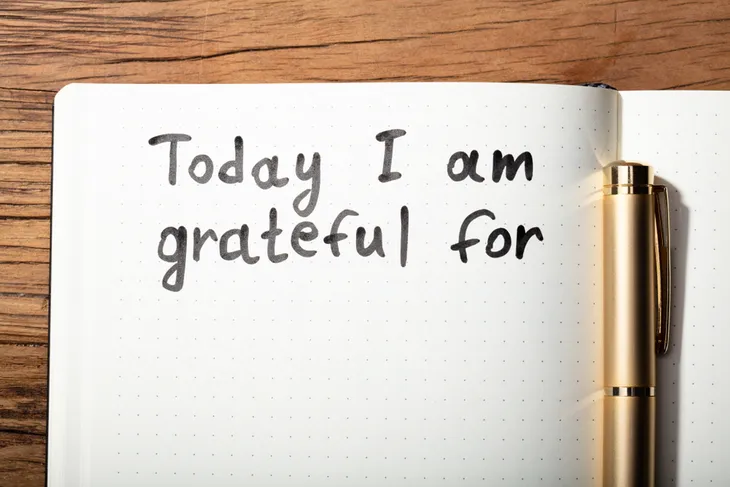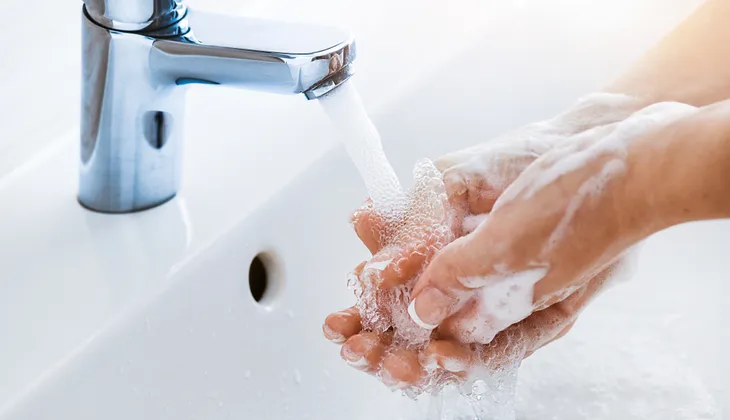Establishing a simple daily routine of healthy habits can have beneficial effects on your health, happiness and overall well being. A routine whether bad or good is simply a set of actions we repeat in the same sequence every day over an extended period of time.
With time these actions become habits because they occur without thought and become automatic. They may include grabbing a donut and coffee every morning before work or having pizza for dinner every Friday night. Establishing good habits and routines can be just as simple to implement as their less healthy counterparts. Let’s take a closer look at some simple and healthy routines…
Brush and Floss Your Teeth Twice a Day
According to a study published in the American Journal of Medicine, participants who brushed and flossed on a daily basis had a significantly decreased risk of stroke. Another study published in the Journal of the American Geriatric Society, found a 65% higher risk of developing dementia in participants who did not brush their teeth.
Other benefits include a reduction in gum disease which has been linked to heart disease, tooth loss and infection. Poor oral hygiene has been linked to erectile dysfunction in men and underweight preterm babies of mothers who have gum and tooth disease.
 Shutterstock/Prostock-studio
Shutterstock/Prostock-studioOrganize Your Day the Night Before
If you have a busy day scheduled tomorrow, consider organizing things ahead of time. This can save time and aggravation plus help keep things running smoothly the following day. Choosing what you are going to wear and laying it out the night before can save precious minutes.
Other things you can do include putting the coffee maker on a timer, packing the kids lunches in advance, putting their clothes out, and having their dry cereal in bowls at the table. Just add milk. If you really want to decrease your stress, think further ahead. Make sure the gas tank is topped up on Sunday and cook the entire week’s meals in advance. All it takes is a little creativity and organization.
Exercise Daily
If you exercise as little as twenty to thirty minutes per day you will improve and maintain your health. Exercise reduces physical and mental stress while at the same time releasing endorphins into the bloodstream that will improve your mood. In addition, exercise promotes heart health by improving your circulation, blood flow and at the same time contributes to helping alleviate anxiety.
You’ll find your mind will stay sharp. Exercise is a known factor in reducing cognitive decline associated with aging. It will help improve your memory, control your weight, and strengthen your muscles. One often overlooked benefit of exercise is that it can be helpful in combating addictions due to the release of the feel good chemical “dopamine,” which addicts normally attain through drugs and alcohol.
Use a Calendar
Calendars are simple, cost –effective, inexpensive and portable tools that can be of tremendous assistance in helping organize and schedule your life. They come in all shapes and sizes and every member of the family, including small children, can learn to use them.
You may want to use a large family calendar to keep track of the children’s activities, doctor’s appointments, parent-teacher meetings, etc. Small day planners fit easily into a purse. Electronic organizers or calendars on your cell phone may be an even better solution for some. Just be sure to have a backup somewhere if you lose your phone or if the internet goes down.
Get a Good Night’s Sleep
Sleep is nature’s great restorative cure. It improves memory, mental acuity, improves attention span, promotes creativity and curbs inflammation. One study found that people who slept less than six hours per night had higher levels of C-reactive protein in their bloodstream. This protein is linked to inflammatory disease of the heart.
In another study participants who slept between five and seven and a half hours per night had fewer deaths than those who slept less than five hours or more than eight. Therefore, if you want to live a healthy life, get a good night’s sleep so that you wake up refreshed and energized every morning.
Eat Two Servings of Vegetables Per Day
Vegetables are often ignored at meal time in favor of carbohydrates or starchy foods. They should be relegated to a place of honor at mealtimes in light of their nutrient rich and health packing benefits. Vegetables contain many vital nutrients such as fibre, folate (folic acid), Vitamins A, E, C, and potassium and magnesium.
Fibre promotes bowel regularity and reduces blood cholesterol which in turn improves cardiac health. Folic acid is essential for red blood cell production and healthy spinal growth during fetal development.
 Shutterstock/BGStock72
Shutterstock/BGStock72Write Down Two Things You are Grateful About Each Day
Gratitude is said to be the single most important element to practice daily in order to achieve happiness. It reframes your thinking to encompass positive reality and allows you to see hidden opportunities. It makes you feel better about yourself, your life circumstances and it draws other positive people to you like a magnet.
An attitude of gratitude is inspirational to not only yourself but to others as well, who learn from your example. It’s a means of rising above your present life circumstances and living life to its fullest in the moment.
Wash Your Hands
Handwashing is a simple and effective way to prevent the spread of germs. You should wash your hands before handling or eating food, after cleaning the toilet, handling animals or treating wounds of any kind. Contaminated hands may appear clean to the naked eye.
A host of microscopic germs, bacteria and viruses may in fact be present after a mere few seconds of contact with a contaminated surface. Gastrointestinal infections, influenza and hepatitis A are a few of the diseases which can be spread from one person to the other by contaminated hands. Regular hand washing can play an instrumental role in keeping yourself and others healthy.









